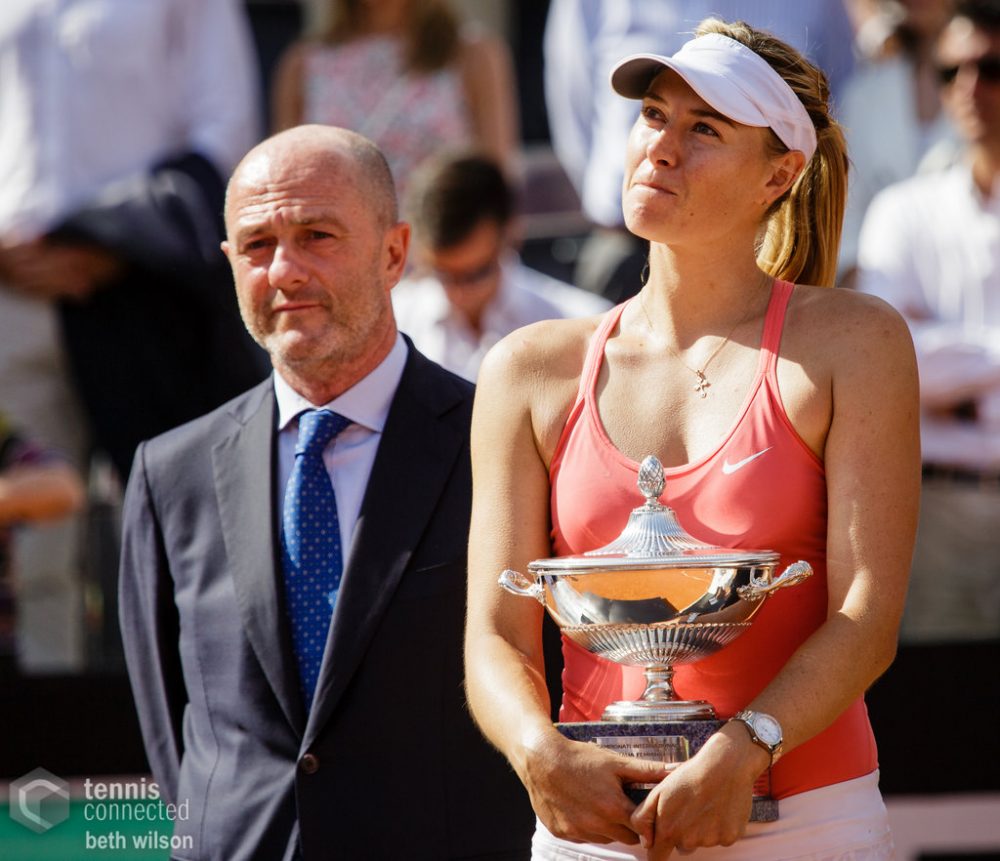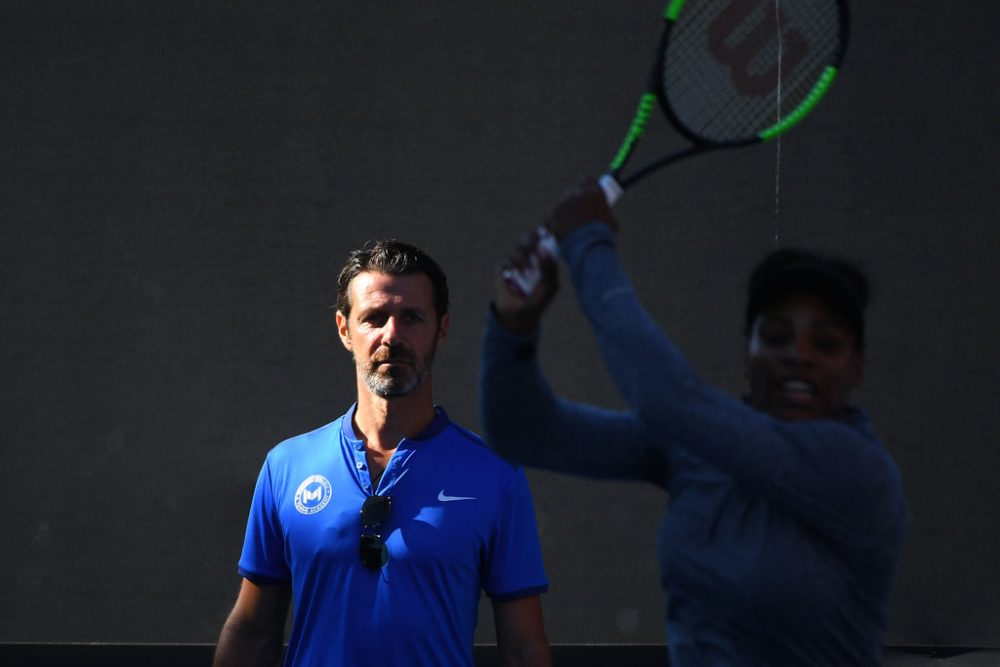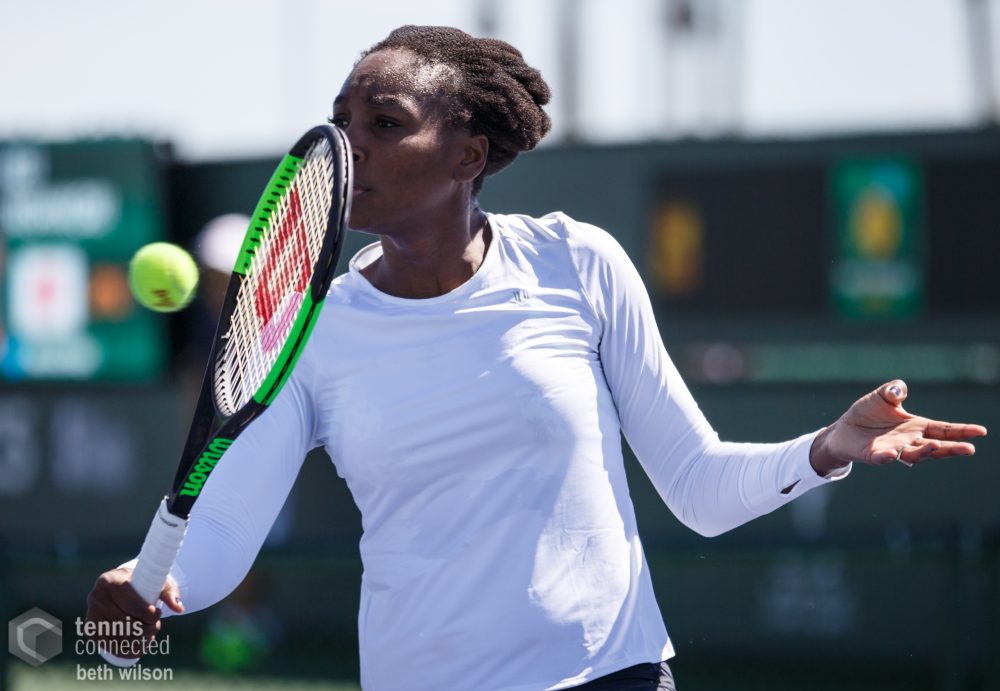Welcome to Tennis Elbow, the column that looks back on the week that was in the world of tennis. This week, Charles Blouin-Gascon looks at the upcoming return from Maria Sharapova.
Maria Sharapova will soon come back.
After her lengthy 15-month suspension for doping, the Russian player is set to return to action next month—but already, the news has had a ripple effect. Because you see, opinion havers have already started voicing their opinions on the matter.
Tennis pro Andy Murray is one such opinion haver. (Roger Federer, as he tends to do on everything that might be perceived as slightly controversial, basically said nothing at all. Others, like Andy Roddick, were more nuanced.)
“I think you should really have to work your way back,” Murray said. Wow. Nothing fancy, right? But then he dives deeper. “The majority of tournaments are going to do what they think is best for their event. If they think having big names there is going to sell more seats, then they’re going to do that.”
Here, let’s commend the 29-year-old for hedging against himself right as he’s giving us the goods, doing the whole “Oh X but you know, Y is probably what’s gonna happen.” That’s perhaps because he understands better than most the system we have in tennis. As far as wild cards go, tournaments are free to do as they damn well please—which is to say: whatever makes them the most money.
But at last, we finally see the endgame of Murray’s opinion on this matter. “She (Sharapova) has an opportunity to try to improve her ranking and potentially not need a wild card (for Wimbledon). […] “But then if she doesn’t, that becomes Wimbledon’s decision and how they want to play that. I’m sure they’ll think long and hard about it and how they feel people will view it and then make the right decision for them.”
And suddenly, everything is crystal clear: Murray believes one thing above all, and he’s willing to throw down the gauntlet and force the folks at Wimbledon to do what he thinks is right. Knowing what we know about this tournament, and how uncompromising they are about things like the dress code for players, we would love to know their true feelings about doping and Sharapova. (Things being as they are, we’re sure the Russian will render this moot by qualifying for the main draw, meh, but let’s dream until that’s true.)
As everything has been thus far in this saga, it’s a fascinating topic—not the least of which because it makes for great content.
Looks like Andy Murray believes that Sharapova should work her way back up the rankings & not be afforded wild cards. Thoughts?
— Tennis Connected (@TennisConnected) March 1, 2017
That’s what we call good Twitter-ing, folks.
But there’s more.
Because maybe in the case of Sharapova, this type of discussion, yes, but mostly this decision to give her wild-card entries also, isn’t such a bad thing. Maybe, like Roddick explained, this is both a business (i.e. let her play because tournaments will make money) and a morality decision. In the latter case, it’s our opinion that maybe we don’t need to vilify Sharapova and mythicize what she has done. The case against her from the International Tennis Federation wasn’t really as cut and dry as your father would have it.
We know a few things. Last season, Sharapova was suspended for 15 months because we found traces in her body of a substance that was banned for the 2016 season. We’re not sure, and neither is WADA, when the Russian took meldonium, because when the ITF suspended her no one was really sure how long the substance could stay in a person’s body; that much we know. We also know that she took meldonium for quite a few years but, like, who cares because it wasn’t banned then.
The rest is whatever. What Sharapova did is, really, pretty minor stuff imo. She was punished and served her time and now she’s back.
Let her play.
Follow Charles Blouin-Gascon on Twitter @RealCBG























I agree with Murray. And they should have made her sit out her whole ban of 2 years first.
She said that she took the stuff for 10 years already. Back then it was not banned, but we know that it was a performance enhancing drug – we just did not know how to detect it reliably. So if we count back 10 years to see how many slams she won without the artificial boost of a performance enhancing drug (that we know of!), the grand total is … drumroll…. 1.
Of course attractive women in tiny, skin-tight clothing do sell.
But then we we are talking about a different profession.
[Congrats by the way to Halep and the other finalists who are now the moral holders of grand slam championships.]